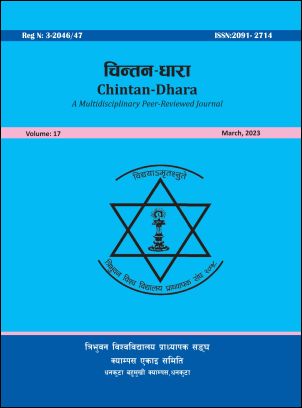A Dialogue between Curriculum Development and Postmodern Perspectives: A Context of Local Knowledge
DOI:
https://doi.org/10.3126/cd.v17i01.53260Keywords:
curriculum, local knowledge, modernity, postmodernity, western thoughtAbstract
This article provides insights into curriculum development from a postmodern perspective on the sustainability and usability of local or indigenous knowledge systems. This paper examines the western thoughts that potentially affect local and indigenous knowledge by analyzing interviews with scholars involved in higher education and explores how western thoughts affect the existing Nepalese school curriculum. Although western thought permeates and pervades our educational practices, the benefits go to them implicitly by subordinating us. There is an argument in the article that postmodern ideas have originated in the womb of western understanding; the ideas in this article are argued to be adaptable to our curriculum development. The rationale behind it is that our current curriculum thinking, from Tayler to Hlynka and Yeaman’s outline of key postmodern thinking, ignores the indigenous nature of knowledge systems, largely othering them as subordinate knowledge. It explores that the developed curriculum should represent unheard voices, ignored realities, and the histories and experiences of underrepresented groups. The authors conclude by suggesting that policies, plans, and programs should be adapted to reflect the underrepresented and unheard voices of the society.




